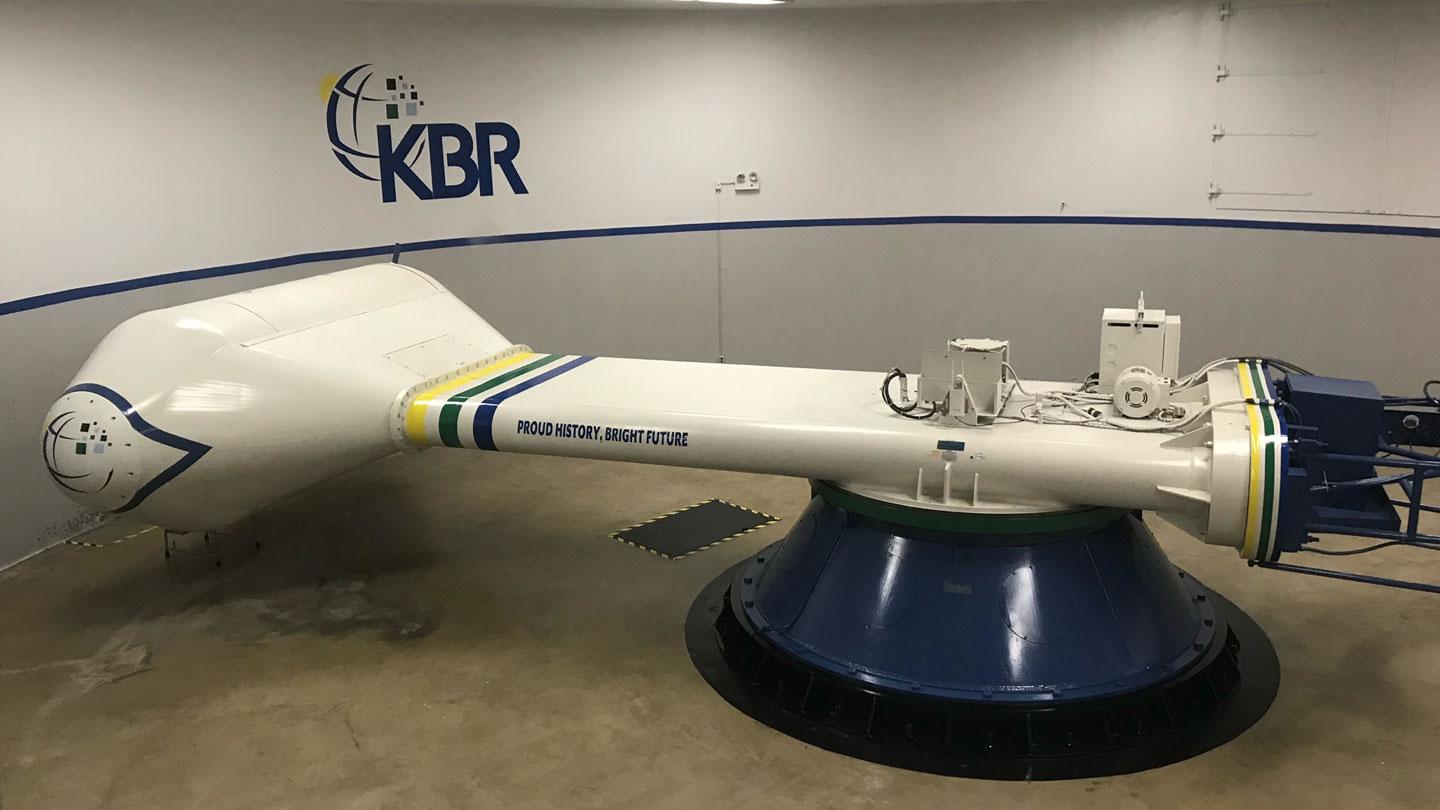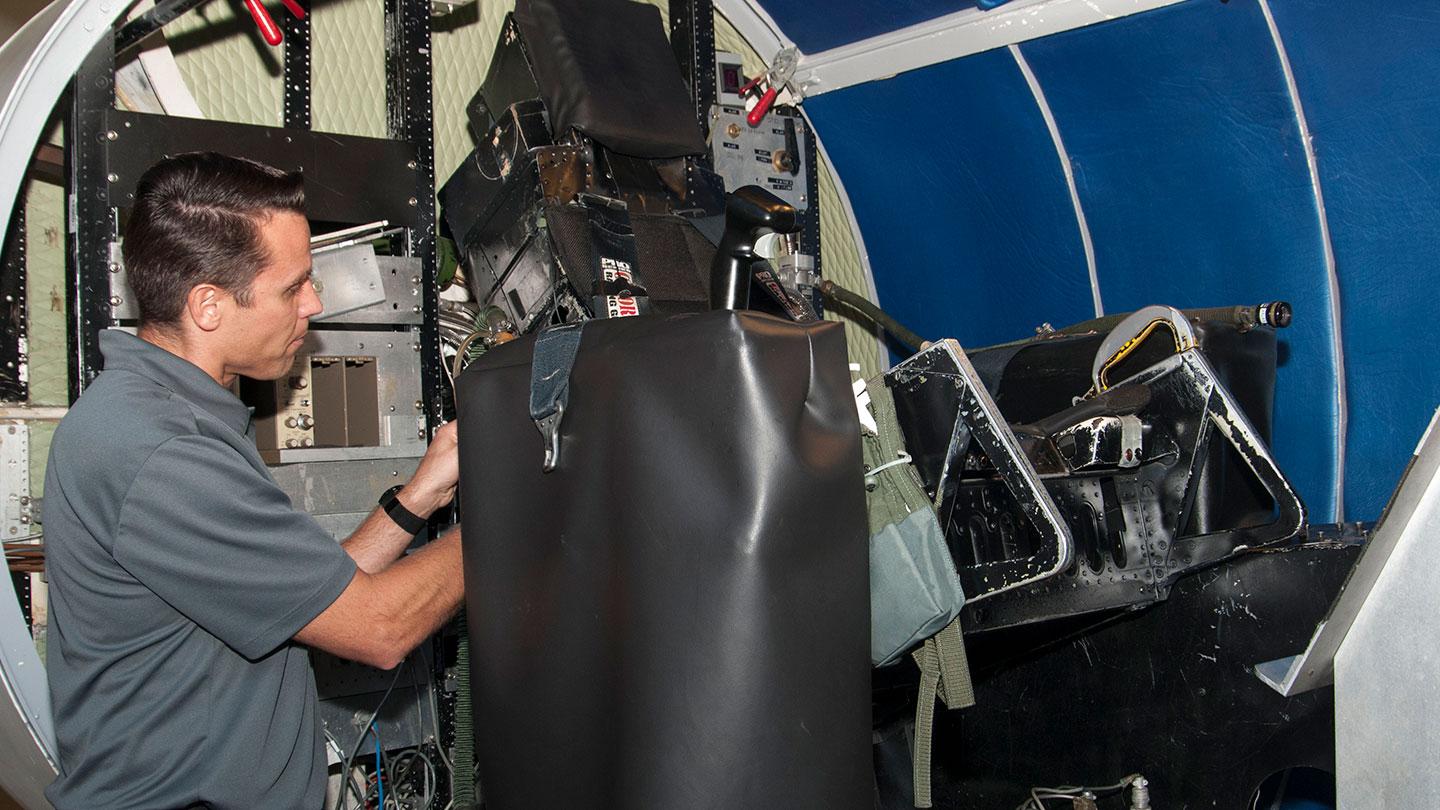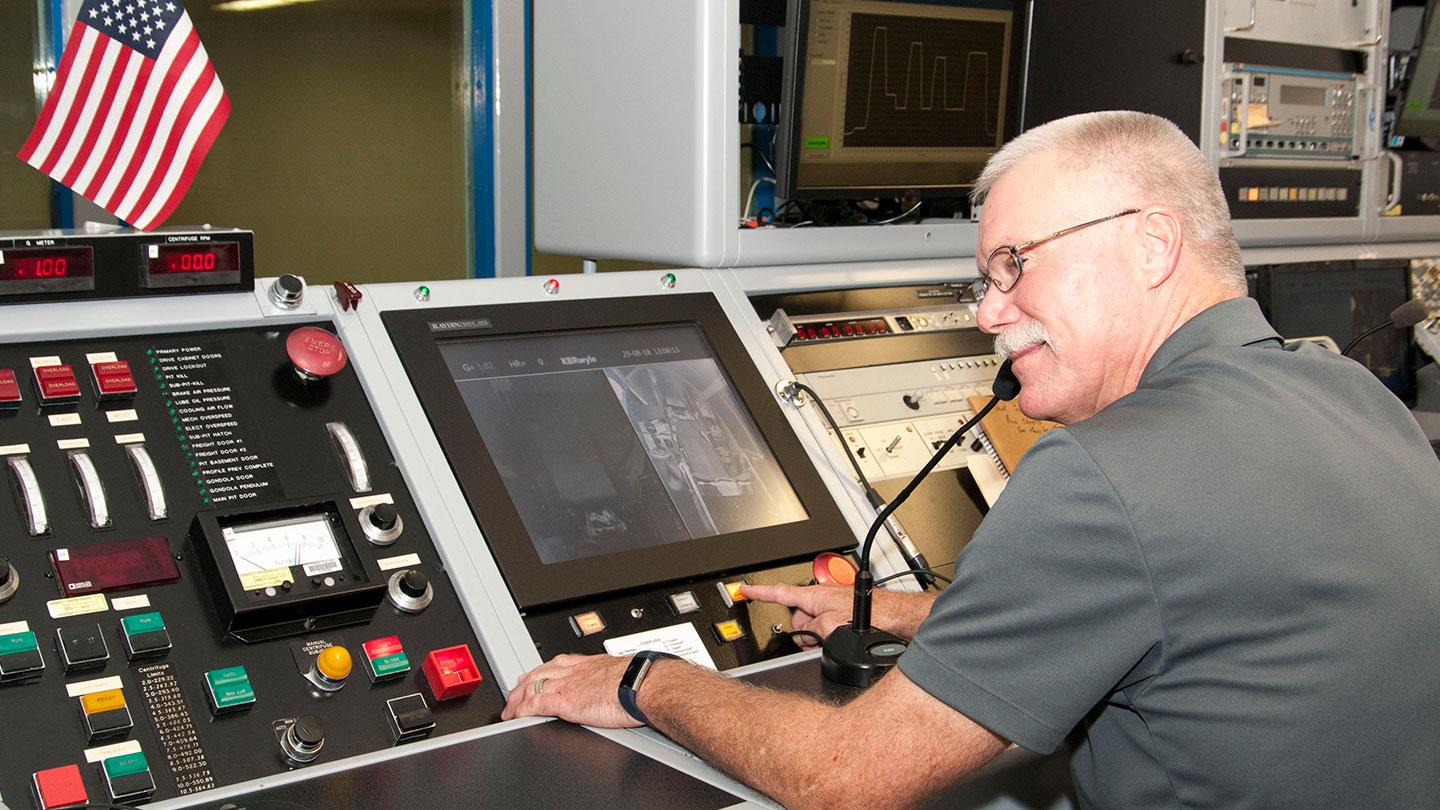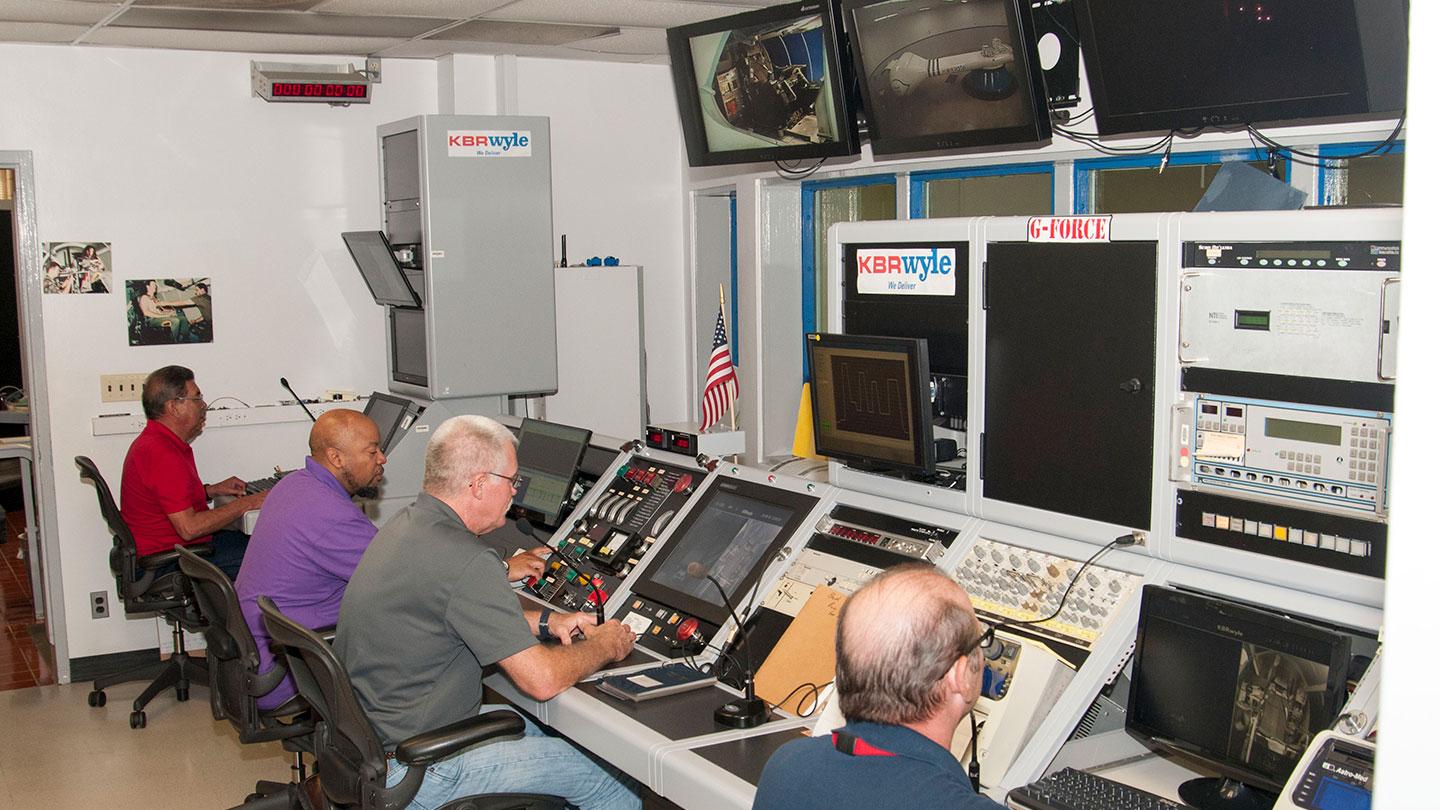KBRwyle Provides High-G Centrifuge Flight Training
Before Senator John Glenn became the oldest astronaut in space, the 77-year old trained for the gravitational forces he would endure during launch with KBRwyle. For more than 50 years, KBRwyle has operated and maintained the Brooks centrifuge in San Antonio, Texas – a human-rated centrifuge where fast-jet pilots and astronauts, such as Glenn, come to train. The centrifuge simulates gravitational forces (G-forces) that these individuals experience in their flying environment.
The KBRwyle-operated centrifuge has been the site of acceleration training for many well-known legends in the field of space travel and fast-jet aircrews. These include all of the Space Shuttle astronauts since 1988; the U.S. Navy Blue Angels aerial demonstration team; and several commercial-flight individuals who paid a visit to the International Space Station.
KBRwyle provides centrifuge-based flight environment training for hundreds of U.S. Air Force, U.S. Navy, U.S. Marine Corps and allied fast-jet aircrew annually. Similar training is also conducted for a panel of approximately 30 volunteer test subjects who represent fast-jet aircrew in research and development of equipment and procedures used in fast-jet operations. These volunteers stay current by coming to the centrifuge a few times each month to practice and improve their technique and stay "G fit."
In training, astronauts and flight crews experience G forces similar to what they experience when riding in their respective vehicles. While the centrifuge is capable of generating up to 30 Gs, typically the fast-jet community will experience 7 to 9 Gs, while astronauts will usually experience around 3 Gs, and up to 8 Gs in simulating an emergency reentry.
KBRwyle provides all personnel, resources, facilities and maintenance for centrifuge-based training, and conducts all required inspections to ensure safe operations. KBRwyle instructors teach students about the physiological effects of acceleration and countermeasures used in a high-G environment. During their training, astronaut and flight crew students receive classroom instruction as well as realistic, hands-on training in the company-operated centrifuge.
"KBRwyle has some of the most knowledgeable staff in the world with decades of experience training all sorts of customers, including military aircrew and astronauts who spend only one day with us, as well as test volunteers who train with us over many years," said Sean Scully, KBRwyle Senior Aerospace Physiologist.
"This experience has allowed the KBRwyle team here at Brooks to dramatically improve how G training is conducted and that improvement has positively impacted flight safety."
In addition to human centrifuge training and medical screenings, the KBRwyle team in San Antonio also has the expertise and equipment to provide instruction in a number of other technical subjects such as altitude chamber training, testing of aeromedical evacuation procedures and technology, oxygen and life support systems safety and performance test and evaluation services, and human performance in extreme environments research.







